MercoPress. South Atlantic News Agency
Tag: Nin Novoa
-
Wednesday, September 25th 2019 - 09:56 UTC
In support of Venezuela, Uruguay abandons the Rio Treaty

Uruguay will leave the Inter-American Treaty of Reciprocal Assistance (TIAR, also known as Rio Pact) due to an “obvious attempt” by the other signatories to use it to threaten Venezuela with the use of force, Uruguayan Foreign Minister Rodolfo Nin Novoa said at a press conference in Montevideo on Tuesday.
-
Tuesday, September 24th 2019 - 09:52 UTC
OAS votes to use Rio Treaty to implement economic sanctions to the Maduro regime, but no military action
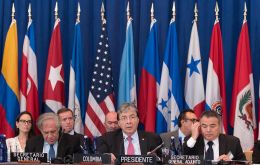
In a meeting convened by the Organization of American States, 16 of the 19 states party to the Inter-American Treaty of Reciprocal Assistance, a 1947 pact known as the Rio Treaty, backed using the pact to collaborate on law-enforcement operations and economic sanctions against Venezuelan leader Nicolás Maduro, and associates, accusing his regime of criminal activity including drug trafficking and money laundering.
-
Tuesday, August 6th 2019 - 10:08 UTC
Uruguay joins Venezuela, recommends travellers visiting US to take extreme precautions because of violence and hate crimes
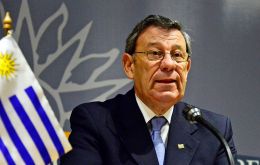
After the weekend shootings in El Paso and Dayton, Ohio, which left more than 31 dead, Uruguay followed on Monday Venezuela and warned their citizens to exercise caution when traveling in the United States.
-
Thursday, June 7th 2018 - 23:10 UTC
The Uruguayan Foreign Ministry describes the number of immigrants arriving in the country as “never seen before”
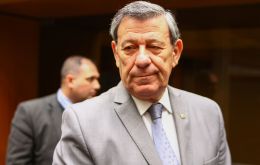
Immigration to Uruguay, Argentina and Chile has exploded exponentially in recent years. It is receiving an “unprecedented” daily requests for refuge in the southern country, according to the Director of Human Rights and Humanitarian Law of the Uruguayan Ministry of Foreign Affairs, Dianela Pi, who explained to MercoPress that “There are acts of discrimination and xenophobia that are emerging in Uruguay as never before” as a result of the migratory phenomenon. This wave comes mostly from citizens of Venezuelan origin.
-
Monday, May 7th 2018 - 20:24 UTC
Uruguay: No position on the FTA with Chile after an official plenary
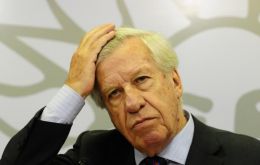
The plenary of the leftist coalition Broad Front concluded on Sunday with a motion that postergates de decision over the Free Trade Agreement (FTA) with Chile, defining to leave the decision on whether or not to support the agreement, delaying the debate to a future plenary whose date is not yet defined. The decision was voted after counting an erroneous sum of the votes in the first instance in which the motion to debate the issue in the plenary had won. However, the votes of the Communist Party of Uruguay (PCU) had been put on the wrong side.
-
Friday, April 27th 2018 - 10:47 UTC
Mujica supports the FTA with Chile: Piñera begins his commercial tour avoiding Uruguay
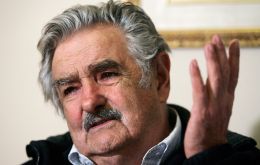
While Chilean President Sebastián Piñera started a commercial tour in Brazil last Thursday, in which he avoids Uruguay because the Free Trade Agreement (FTA) with Chile is blocked in the Uruguayan Parliament since 2016, ex-president José Mujica explained that he supports the FTA with Chile in order to look for “the best incentives to ensure commercial stability.” The bench of former president Mujica and the communist party refuse to approve the commercial agreement.
-
Monday, April 23rd 2018 - 09:22 UTC
China and South Korea seek trade agreements with Mercosur
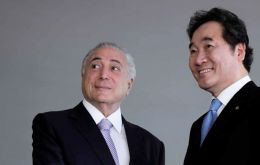
China and South Korea are seeking to establish free trade agreements with Mercosur in a strategic response to Washington's increasingly protectionist stance. The East Asian initiatives have resonated well in a region where Washington is keeping its distance. U.S. President Donald Trump has not visited a single Latin American country since taking office in January 2017, and chose not to attend the Summit of the Americas, which recently concluded in Peru.
-
Friday, April 20th 2018 - 09:46 UTC
Salisbury nerve gas incident: Uruguay rejects US suggestion to expel Russian diplomats

Washington’s request that other countries also expel Russian diplomats is improper, Uruguay’s Foreign Minister Rodolfo Nin Novoa said. “I did not take this request well, I said it was improper and it should not have been made,” the top diplomat said as cited by the El Pais newspaper.
